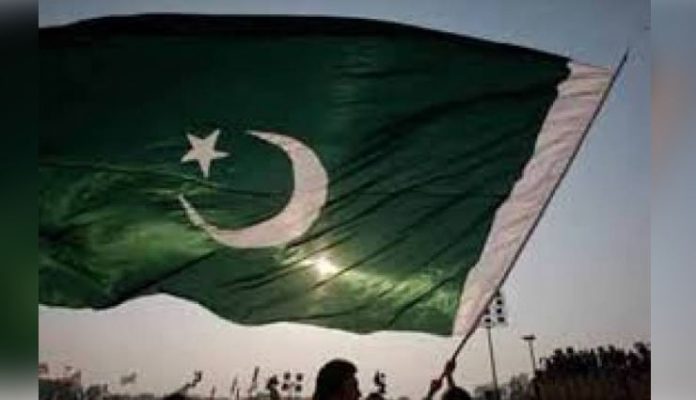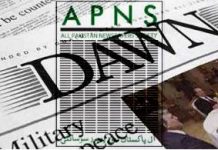Dr. Abdus Sattar Abbasi
I was amazed listening to the Minister of State (MoS) for Foreign Affairs that Pakistan is now ahead of some developed countries in compliance of Financial Action Task Force (FATF)regulations and fulfilled requirements on thirty four indicators of FATFwhile the process of whitelisting has started with the recent announcement of the global body.
It is not the first time that Pakistan emerged out of the crisis as a strong nation. I am sure, most of us cannot forget March 03, 2009, a terrible day for Pakistan cricket, when terrorists attacked Sri Lankan cricket team and suddenly international cricket vanished from Pakistan. I remember the passion during the final of second PSL held in Lahore on March 05, 2017, we decided to join Qaddafi Stadium to witness the return of cricket to Pakistan. We boarded the bus from Barkat Market for the stadium; Arham was almost four years old and I was educating him to cling around my chest if there is any blast; everyone can imagine the uncertainty, the fear, and the panic surrounding cricketing events during those times. Then what happened, Pakistan the Champions Trophy winner, Babar Azam the number one batter of ODIs and T20Is, and several others among top five rankings.
Devastations of 2005 earthquake are in our memories with exemplary response of entire nation to extend every support to the victims. Extensive mobilization of resources from tents, blankets, medicines, and prefabricated houses by local artisans to the groceries, people donated abundantly for the restoration of normal life in affected areas. The response and the recovery from the floods during 2010 exemplify innate abilities of the nation to manage crisis effectively. Managing pandemics such as dengue, covid-19 and to the extent polio are also good examples of Country’s ability to successfully respond to the crisis.
Pakistan has surprised the world with her abilities to counter terrorism. We suffered the most, we sacrificed the most, we lost the most but we arose as the most successful nation in combating the terrorism. Our skills, our abilities, our determination and probably above all our engagement with every component of the society from rebels to internally displaced people made it a model for other nations to follow. We achieved what remained impossible for an alliance of 30 countries.
It is because of our exceptional abilities of crisis management as a nation. Our able professionals in every sphere of life from pure sciences to administrative and management sciences have always delivered their responsibilities religiously thus leading the nation to the achievements such as recent announcements by the MoS for foreign affairs.
According to Kash and Darling from University of Pittsburg, Kansas, USA, “a crisis is defined asany unplanned event that can cause serious damage to the public; shut down the businesses; disruptoperations; cause physical or environmentalcalamity; or threaten financialstanding or image of the nation. Crisis management is defined as a series of functions orprocesses to identify, study and forecast the crisis, and set forth specific ways that would enable an organization to prevent or copewith a crisis. Crisescan bemanaged much more effectively if we prepare for them.Most crises do not occur suddenly. The signals can usually be picked up and the symptoms checked as they emerge. People determined to address these issues realize that the real challenge is not just to recognizecrises, but to recognize them in a timely fashion.”
Crisis management consistsoffour distinct stages. Identification of crisis and the preparedness, the whole life in Islam moves around the preparedness for the life hereafter, ‘the unseen’. To be prepared for the unseen is exactly according to the teachings, norms and centuries of practices of followers of Islamic way of life. Identifying what can lead to bitter outcomes in the life spreads over entire body of teachings in Islam. Therefore, to identify factors which can exacerbate the experience during the times of crisis are aligned with the spirit of Islamic teachings. Then, being prepared with all known aspects and resources to handle the crisis is the essence of teachings on Islamic way of life. In today’s dynamic environment despite all the efforts a countrycan put forth to scan the environmental issues, crises can still occur and have to be managed. Acknowledging a crisis and communicating with the stakeholders are as important as planning the prevention, diagnosis, and intervention to solve crisis situations.
Mitigation and prevention of crisis, during day-to-day operations one cannot predict every unseen aspect of operations. Management of unforeseen issues which usually lead to a crisis is mostly missing in number of organisations around the world. Sometimes, despite appropriate measures, crisis surprises organisations with new and unique dimensions. Therefore, experience curve has its place in strategic planning and management about learning from mistakes. Managerial activities such as scenario analysis, contingency planning and focusing on the negatives of risk management to bring balance have evolved in contemporary studies. Minimising the risk and zero tolerance for violation of codes needs good management and governance practices with wide-ranging command and control systems for people with authority to develop efficient communities.
Response and monitoring, we are prone to sudden and extensive crises due to complex operations and technological vulnerabilities.Organizations are now equipped to precisely predict when and what types of crises are expected to face. It is important for strong communities to ensure regular evaluation to determinepreparations to deal with probable devastations.
Four factors including people & leadership, financial position, stakeholder support, and supply chain risk management can provide sustainable recovery and effective review of the crisis to avoid incessant shocks.An able pool of professionals and technically trained people in the Country has usually proved their abilities, such as the recent FATF crisis, to prevent the nation from complete breakdown and chaos. Our leadership despite several challenges rose to the occasion on several strategic fronts. We remained fortunate to have a close liaison with key stakeholders both globally and in the region, however, we certainly failed at some key occasions. Our supply chain of essential goods and services is no more stable as evident by recurrent shortages, therefore needs serious attention and long-term planning for stable future, it is certainly not possible without strong financial position which is currently on default lines thus needs instant and reliable measure to avoid greater crisis.
Dr. Abdus Sattar Abbasi, Associate Professor Management Sciences, Head, Center of Islamic Finance, COMSATS University (CUI) Lahore Campus [email protected]












